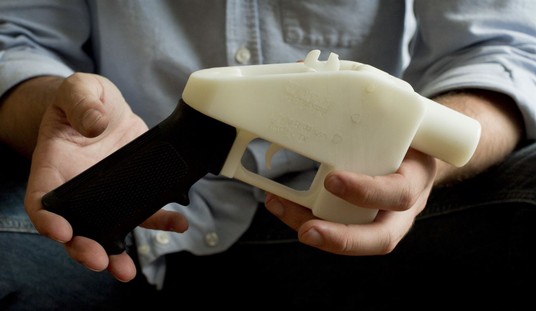Time and time again, anti-gun activists and writers will point to so-called “smart guns” as some answer to gun violence.
On the surface, they sound great. After all, a smart gun would be useless to a gun thief. They’d only work for me, so even if a bad guy wrestled a firearm away from me during a confrontation, he couldn’t turn and shoot me. They’d do wonders to reduce crime.
Except, that’s not the reality. The reality is far more complicated than that.
But that won’t stop anti-gun columnists from arguing that the technology exists now.
On average, 5,790 children in the United States receive medical treatment in an emergency room each year for a gun-related injury, according to a recent study from 2012-2014 data. About 21 percent of those injuries were unintentional. The rest were suicides and homicides. Appeals to the morality of gun manufacturers or their lobbies have proven useless, but perhaps they can be persuaded by the lure of greater profits.
Entrepreneurs have been developing gun technology that uses biometrics to identify a weapon’s owner while disabling it for anyone else. These so-called smart guns won’t prevent every gun death. But they can certainly cut down on accidental shootings and prevent crimes or suicides with weapons that are owned by somebody else.
Smart guns aren’t largely available because the firearms lobby opposes them, and gun manufacturers are reluctant to invest in them. In fact, when Smith & Wesson, one of the largest handgun manufacturers, considered developing smart-gun technology in the wake of the Columbine school shooting in 1999, the National Rifle Association turned on the company. The NRA convinced gun owners to boycott the company until it backed off the idea. Major advances in gun-safety technology have stalled since then.
Yet, there is a demand for a safer product. A 2016 study from Johns Hopkins University found that almost 60 percent of Americans who are considering a handgun purchase would be willing to make it a smart gun. This is an untapped business opportunity.
No, it’s not. It’s suicidal for a company, and that’s in part because of the gun control lobby.
You see, in the state of New Jersey, there exists a law that essentially says the moment smart gun technologies become viable, residents will be only able to purchase those weapons.
Thanks to the wonder of patent law, that technology won’t be reproducible by any other company. They’ll have to find their own methods, which may mean scrapping years of research.
Meanwhile, that one company will have a monopoly on firearm sales in New Jersey.
However, the rest of the gun buying community will shun that company completely. You see, we tend to oppose the law in New Jersey (which purports to be about child safety, by the way), and we don’t want to see our brothers and sisters in the state relegated to being only able to buy one gun. Plus, let’s face it, New Jersey’s not a big enough market to sustain any gun manufacturer for very long.
Not just that, though, but part of the problem with so-called smart guns is that they’re not that smart. For example, they can’t recognize an emergency situation.
For example, let’s say I have one firearm in my house and it’s a smart gun. I’m off for the day, and someone tries to break into my home. My wife, terrified, grabs the firearm to defend herself from the intruder.
Too bad, it won’t work for her.
Take my wife out of that equation by having it be my 17-year-old son while my wife and I are out for the evening. Someone tries to break in. He calls the police, of course, but he doesn’t want to count on his six foot tall, 280-plus pound frame being a deterrent, so he goes for the gun while he waits for help to arrive.
Again, he can’t use the gun.
Biometric locks don’t necessarily save lives any more than proper education can. But they can damn sure cost lives.
Couple that with the fact that if you add complication to any device, you also add new and interesting points of failure. For example, a biometric lock that decides to glitch at the precise moment I need it.
Is it any wonder there’s opposition to these things?
Yet anti-gunners will continue to tout the damn things like they’re the solution to oh-so-many problems. They’re not. They’re coroner van rides waiting to happen.








Join the conversation as a VIP Member